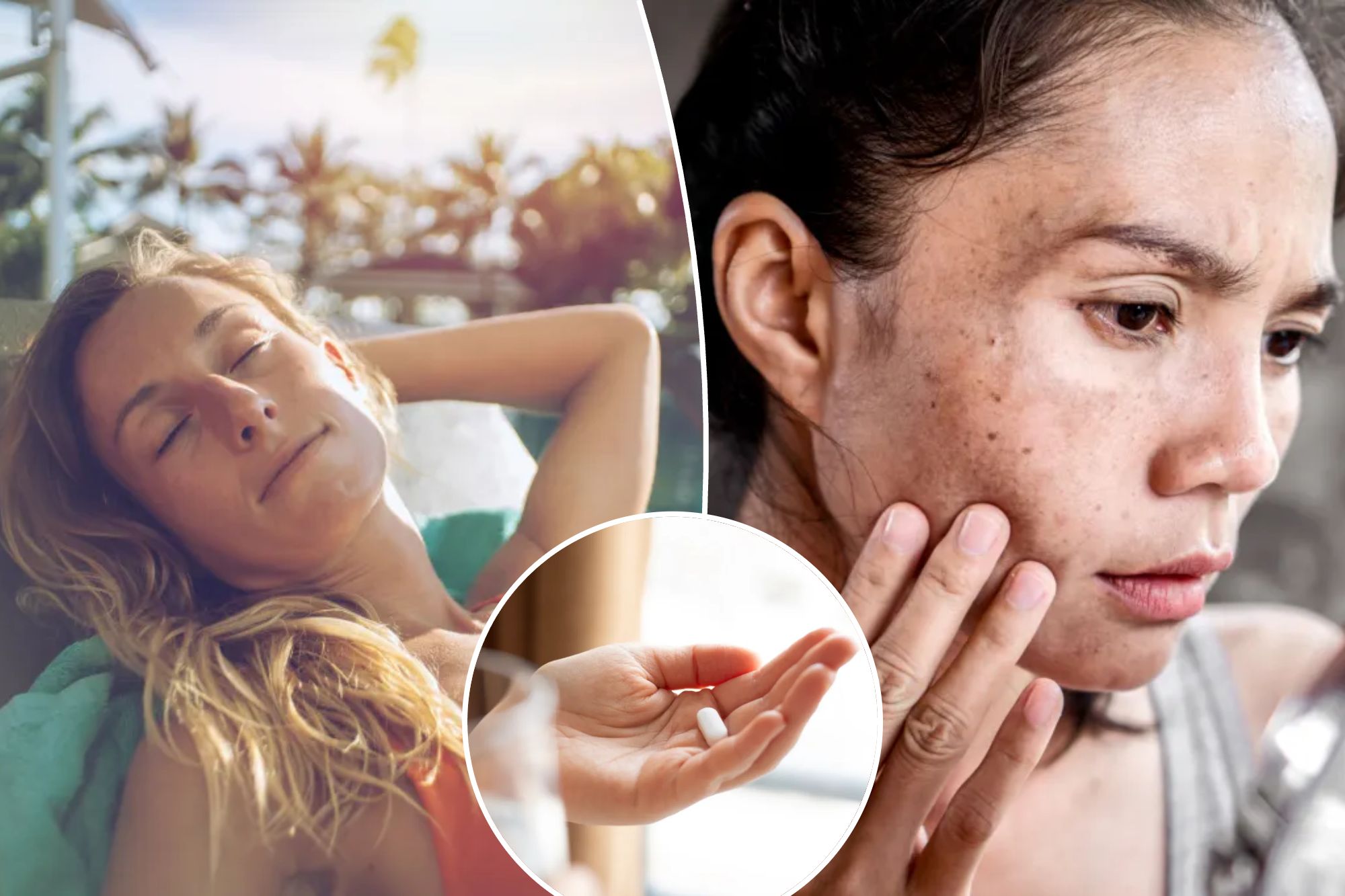You don’t want to go from brrrr to burn.
Much of the United States is getting the first spring tasting after an unusually brutal winter. But before going to the sunlight, you may want to review your Cabinet or Medicine Screate.
A dermatology specialist warns that certain medicines can increase skin sensitivity to sunlight and increase the risk of skin cancer.
“Most people have no idea that their medication could make them more sensitive to the sun,” The Post told Dr. Emily Alfonsi, medical director of Shade Skin in Australia.
“They could notice that they burn faster or develop unusual eruptions, but do not immediately connect it to their medication,” Alfonsi added.
Alfonsi said he saw patients developing second degree burns with blister eruptions, inexplicable, or dark patchs of skin, even in indirect sun.
Photosensitivity is the culprit: it is a reaction exaggerated to the ultraviolet light. The body absorbs UV radiation, chemically changing medicine on the skin and can cause eruptions, blisters, swelling, peeling, burning, itching or long -lasting hyperpigmentation.
“For people with photographic medicines, a few minutes in the sun without protection can have serious consequences,” said Alfonsi.
It light on four types of medicines that can cause photosensitivity and shares four tips to protect you if you are in these medicines. Although sun protection is effective, Alfonsi said, “It’s not a free pass to be in the sun all day.”
Antibiotics
Alfonsi said that tetracyclines and fluoroquinolons, used for bacterial infections, can cause severe sunburn even after brief exposure to the UV.
Doxycycline and minocycline are tetracyclines, while fluoroquinolons include ciprofloxacin (brand name: Cipro) and levofloxacin (levaquin).
Diuretic
Diuretics, also known as “water pills”, help the body eliminate excess salt and water, treat high blood pressure and fluid retention.
Studies have suggested a bond between diuretics such as hydroclorotiazide and an increase in risk of carcinoma of squad cells, the second most common skin cancer in the United States.
Immunosuppressors
Medicines such as azatioprine, which are commonly used in patients with transplantation to prevent organs’ rejection and to reduce rheumatoid arthritis symptoms, can weaken natural skin defenses against UV damage.
Non -steroid anti -inflammatory drugs (Aine)
Aine as ibuprofen and naproxe (brand name: fry) reduce pain, inflammation and fever.
Researchers say that long -term use can cause sun sensitivity.
How to protect the skinEspecially if you have a photosensitizing drug
“Prevention is key,” said Alfonsi. “If you are taking a drug that increases the sensitivity of the Sun, some additional precautions may significantly reduce the risk of long -term skin damage and skin cancer.”
- Apply sun protection that is SPF 30 or higher every day, even in winter.
- Protect from the sun with sunglasses that block UV, wide pontings and other protective equipment.
- Avoid maximum sunshine hours, often from 10 a.m. to 4 p.m.
- Program Dermatologist’s annual visits and supervise the skin for unusual changes.
#people #idea #common #medicines #increase #risk #skin #cancer
Image Source : nypost.com
